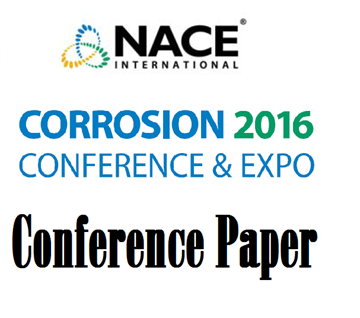Search
99611 Fatigue Crack Propagation and Fracture in Sour Dilute Brine
Also Purchased
99610 Fatigue Initiation and Crack Closure of Low Alloy Steels in Sour Brine Environments
Product Number:
51300-99610-SG
ISBN:
99610 1999 CP
$20.00
99834 FRACTURE TOUGHNESS AND MECHANICAL PROPERTIES OF C-Mn STEELS EXPOSED TO WET H2S ENVIRONMENTS
Product Number:
51300-99384-SG
ISBN:
99384 1999 CP
$20.00
51316-7183-Sour Service Fatigue and Fracture Behavior of High Strength Steels
Product Number:
51316-7183-SG
ISBN:
7183 2016 CP
Publication Date:
2016
$20.00




